第16章 A DANGEROUS DIET(3)
Next morning I find it more anxious than the day before and still groping about, without resolving to fix its mandibles anywhere. I leave it alone for half a day longer without obtaining any result. Yet twenty-four hours of abstinence must have awakened a good appetite, above all in a creature which, if left undisturbed, would not have ceased eating.
Excessive hunger cannot induce it to nibble at an unlawful spot. Is this due to feebleness of the teeth? By no means: the Cetonia's skin is no tougher on the back than on the belly; moreover, the grub is capable of perforating the skin when it leaves the egg; a fortiori, it must be more capable of doing so now that it has attained a sturdy growth. Thus we see no lack of ability, but an obstinate refusal to nibble at a point which ought to be respected. Who knows? On this side perhaps the grub's dorsal vessel would be wounded, its heart, an organ indispensable to life. The fact remains that my attempts to make the grub tackle its victim from the back have failed. Does this mean that it entertains the least suspicion of the danger which it might incur were it to produce putrefaction by awkwardly carving its victuals from the back? It would be absurd to give such an idea a moment's consideration. Its refusal is dictated by a preordained decree which it is bound to obey.
My Scolia-grubs would die of starvation if I left them on their victim's back. I therefore restore matters as they were, with the Cetonia-larva belly uppermost and the young Scolia on top. I might utilise the subjects of my previous experiments; but, as I have to take precautions against the disturbance which may have been caused by the test already undergone, Iprefer to operate on new patients, a luxury in which the richness of my menagerie allows me to indulge. I move the Scolia from its position, extract its head from the entrails of the Cetonia-larva and leave it to its own resources on its victim's belly. Betraying every symptom of uneasiness, the grub gropes, hesitates, casts about and does not insert its mandibles anywhere, though it is now the ventral surface which it is exploring. It would not display greater hesitation if placed on the back of the larva. Irepeat, who knows? On this side it might perhaps injure the nervous plexus, which is even more essential than the dorsal vessel. The inexperienced grub must not drive in its mandibles at random; its future is jeopardized if it gives a single ill-judged bite. If it gnaws at the spot where I myself operated with my needle wrought into a scalpel, its victuals will very soon turn putrid. Once more, then, we witness an absolute refusal to perforate the skin of the victim elsewhere than at the very point where the egg was fixed.
The mother selects this point, which is undoubtedly that most favourable to the future prosperity of the larva, though I am not able clearly to discern the reasons for her choice; she fixes the egg to it; and the place where the opening is to be made is henceforth determined. It is here that the grub must bite: only here, never elsewhere. Its invincible refusal to tackle the Cetonia in any other part, even though it should die of starvation, shews us how rigorous is the rule of conduct with which its instinct is inspired.
As it gropes about, the grub laid on the victim's ventral surface sooner or later rediscovers the gaping wound from which I have removed it. If this takes too long for my patience, I can myself guide its head to the place with the point of a paint-brush. The grub then recognizes the hole of its own making, slips its neck into it and little by little dives into the Cetonia's belly, so that the original state of affairs appears to be exactly restored. And yet its successful rearing is henceforth highly problematical. It is possible that the larva will prosper, complete its development and spin its cocoon; it is also possible--and the case is not unusual--that the Cetonia-larva will soon turn brown and putrid. We then see the Scolia itself turn brown, distended as it is with putrescent foodstuffs, and then cease all movement, without attempting to withdraw from the sanies. It dies on the spot, poisoned by its excessively high game.
What can be the meaning of this sudden corruption of the victuals, followed by the death of the Scolia, when everything appeared to have returned to its normal condition? I see only one explanation. Disturbed in its activities and diverted from its usual courses by my interference, the grub, when replaced on the wound from which I extracted it, was unable to rediscover the lode at which it was working a few minutes earlier; it thrust its way at random into the victim's entrails; and a few untimely bites extinguished the last sparks of vitality. Its confusion rendered it clumsy; and the mistake cost it its life. It dies poisoned by the rich food which, if consumed according to the rules, should have made it grow plump and lusty.
I was anxious to observe the deadly effects of a disturbed meal in another fashion. This time the victim itself shall disorder the grub's activities.